ARTICLE AD BOX

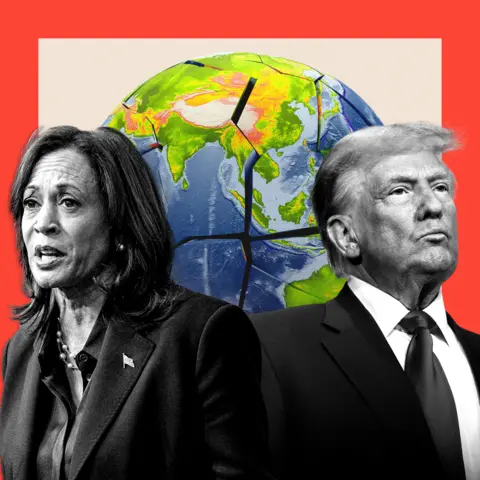 BBC
BBC
When US President Joe Biden walked through Kyiv in February 2023 on a surprise visit to show solidarity with Volodymyr Zelensky, his Ukrainian counterpart, air sirens were wailing. “I felt something… more strongly than ever before,” he later recalled. “America is a beacon to the world.”
The world now waits to see who takes charge of this self-styled beacon after Americans make their choice in next week’s presidential election. Will Kamala Harris carry on in Biden’s footsteps with her conviction that in “these unsettled times, it is clear America cannot retreat”? Or will it be Donald Trump with his hope that “Americanism, not globalism” will lead the way?
We live in a world where the value of US global influence is under question. Regional powers are going their own way, autocratic regimes are making their own alliances, and the devastating wars in Gaza, Ukraine and elsewhere are raising uncomfortable questions about the value of Washington’s role. But America matters by dint of its economic and military strength, and its major role in many alliances. I turned to some informed observers for their reflections on the global consequences of this very consequential election.
Military might
“I cannot sugarcoat these warnings,” says Rose Gottemoeller, Nato’s former deputy secretary general. “Donald Trump is Europe’s nightmare, with echoes of his threat to withdraw from Nato in everyone’s ears.”
Washington’s defence spending amounts to two-thirds of the military budgets of Nato’s 31 other members. Beyond Nato, the US spends more on its military than the next 10 countries combined, including China and Russia.
Trump boasts he’s playing hardball to force other Nato countries to meet their spending targets, which is 2% of their GDP - only 23 of the member nations have hit this target in 2024. But his erratic statements still jar.
If Ms Harris wins, Ms Gottemoeller believes “Nato will no doubt be in good Washington hands.” But she has a warning there too. “She will be ready to continue working with Nato and the European Union to achieve victory in Ukraine, but she will not back off on [spending] pressure on Europe.”
But Harris’s team in the White House will have to govern with the Senate or the House, which could both soon be in Republican hands, and will be less inclined to back foreign wars than their Democratic counterparts. There’s a growing sense that no matter who becomes president, pressure will mount on Kyiv to find ways out of this war as US lawmakers become increasingly reluctant to pass huge aid packages.
Whatever happens, Ms Gottemoeller says, “I do not believe that Nato must fall apart.” Europe will need to “step forward to lead.”
The peacemaker?
The next US president will have to work in a world confronting its greatest risk of major power confrontation since the Cold War.
“The US remains the most consequential international actor in matters of peace and security”, Comfort Ero, president and CEO of the International Crisis Group, tells me. She adds a caveat, “but its power to help resolve conflicts is diminished.”
Wars are becoming ever harder to end. “Deadly conflict is becoming more intractable, with big-power competition accelerating and middle powers on the rise,” is how Ms Ero describes the landscape. Wars like Ukraine pull in multiple powers, and conflagrations such as Sudan pit regional players with competing interests against each other, and some more invested in war than in peace.
America is losing the moral high ground, Ms Ero says. “Global actors notice that it applies one standard to Russia's actions in Ukraine, and another to Israel's in Gaza. The war in Sudan has seen terrible atrocities but gets treated as a second-tier issue.”
A win by Ms Harris, she says, “represents continuity with the current administration.” If it’s Trump, he “might give Israel an even freer hand in Gaza and elsewhere, and has intimated he could try to cut a Ukraine deal with Moscow over Kyiv’s head.”
On the Middle East, the Democratic candidate has repeatedly echoed Mr Biden’s firm backing of Israel’s “right to defend itself.” But she’s also made a point of emphasising that “the killing of innocent Palestinians has to stop.”


Palestinians sit next to a fire in the rubble of their destroyed home in Khan Younis
Trump has also declared it’s time to “get back to peace and stop killing people.” But he’s reportedly told the Israeli leader Benjamin Netanyahu to “do what you have to do.”
The Republican contender prides himself on being a peacemaker. “I will have peace in the Middle East, and soon,” he vowed in an interview with Saudi Arabia’s Al Arabiya TV on Sunday night.
He’s promised to expand the 2020 Abraham Accords. These bilateral agreements normalised relations between Israel and a few Arab states, but were widely seen to have sidelined the Palestinians and ultimately contributed to the current unprecedented crisis.
On Ukraine, Trump never hides his admiration for strongmen like Russia’s Vladimir Putin. He’s made it clear he wants to end the war in Ukraine, and with it the US’s hefty military and financial support. “I’ll get out. We gotta get out,” he insisted in a recent rally.

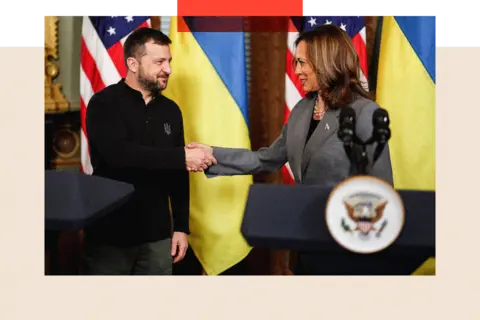
Harris has pledged to be a firm ally to Ukraine
In contrast, Ms Harris has said: “I have been proud to stand with Ukraine. I will continue to stand with Ukraine. And I will work to ensure Ukraine prevails in this war.”
But Ms Ero worries that, no matter who’s elected, things could get worse in the world.
Business with Beijing
“The biggest shock to the global economy for decades.” That’s the view of leading China scholar Rana Mitter regarding Trump’s proposed 60 percent tariffs on all imported Chinese goods.
Imposing steep costs on China, and many other trading partners, has been one of Trump’s most persistent threats in his “America first” approach. But Trump also lauds what he sees as his own strong personal connection with President Xi Jinping. He told the Wall Street Journal’s editorial board he wouldn’t have to use military force if Beijing moved to blockade Taiwan because the Chinese leader “respects me and he knows I’m [expletive] crazy.”
But both leading Republicans and Democrats are hawkish. Both see Beijing as being bent on trying to eclipse America as the most consequential power.
But Mr Mitter, a British historian who holds the ST Lee Chair in US-Asia relations at Harvard’s Kennedy School, sees some differences. With Ms Harris he says, “relations would likely develop in a linear fashion from where they are now.” If Trump wins, it’s a more “fluid scenario.” For example, on Taiwan, Mr Mitter points to Trump’s ambivalence about whether he would come to the defence of an island far from America.
China’s leaders believe both Ms Harris and Trump will be tough. Mr Mitter sees it as “a small group of establishment types favour Harris as ‘better the opponent you know.’ A significant minority see Trump as a businessman whose unpredictability might just mean a grand bargain with China, however unlikely that seems.”
Climate crisis
“The US election is hugely consequential not just for its citizens but for the whole world because of the pressing imperative of the climate and nature crisis,” says Mary Robinson, chair of the Elders, a group of world leaders founded by Nelson Mandela, and former president of Ireland and UN High Commissioner for Human Rights.
“Every fraction of a degree matters to avert the worst impacts of climate change and prevent a future where devastating hurricanes like Milton are the norm,” she added.

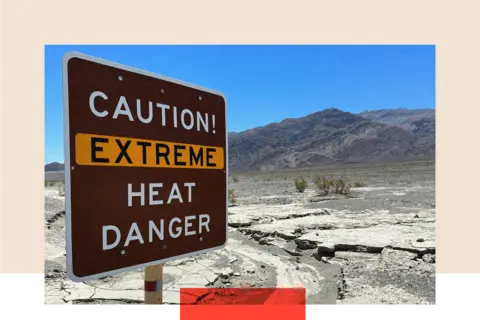
An extreme heat warning in Death Valley, California
But as Hurricanes Milton and Helene raged, Trump derided environmental plans and policies to confront this climate emergency as “one of the greatest scams of all time.” Many expect him to pull out of the 2015 Paris climate agreement as he did in his first term.
However, Ms Robinson believes Trump cannot stop the momentum now gathering steam. “He cannot halt the US energy transition and roll back the billions of dollars in green subsidies... nor can he stop the indefatigable non-federal climate movement.”
She also urged Ms Harris, who still hasn’t fleshed out her own stance, to step up “to show leadership, build on the momentum of recent years, and spur other major emitters to pick up the pace.”
Humanitarian leadership
“The outcome of the US election holds immense significance, given the unparalleled influence the United States wields, not just through its military and economic might, but through its potential to lead with moral authority on the global stage,” says Martin Griffiths, a veteran conflict mediator, who, until recently, was the UN Under-Secretary-General for Humanitarian Affairs and Emergency Relief Coordinator.
He sees greater light if Ms Harris wins, and says that “a return to Trump’s presidency marked by isolationism and unilateralism, offers little but a deepening of global instability.”
But he has criticism, too, for the Biden-Harris administration, citing its “hesitancy” over the deteriorating situation in the Middle East.
Aid agency bosses have repeatedly condemned Hamas’s murderous October 7th assault on Israeli civilians. But they’ve also repeatedly called on the US to do much more to end the profound suffering of civilians in Gaza as well as in Lebanon.

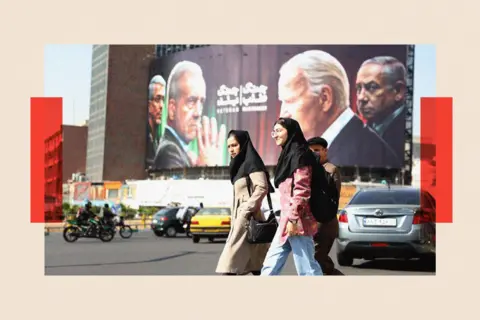
A billboard in Tehran shows the Iranian president and a Revolutionary Guards leader opposite Biden and Netanyahu
Biden and his top officials continually called for more aid to flow into Gaza, and did make a difference at times. But critics say the aid, and the pressure, was never enough. A recent warning that some vital military assistance could be cut pushed the decision until after the US elections.
The US is the single largest donor when it comes to the UN system. In 2022, it provided a record $18.1bn (£13.9bn).
But in Trump’s first term, he axed funding for several UN agencies and pulled out of the World Health Organisation. Other donors scrambled to fill the gaps – which is what Trump wanted to happen.
But Griffths still believes America is an indispensable power.
“In a time of global conflict and uncertainty, the world longs for the US to rise to the challenge of responsible, principled leadership... We demand more. We deserve more. And we dare to hope for more.”
BBC InDepth is the new home on the website and app for the best analysis and expertise from our top journalists. Under a distinctive new brand, we’ll bring you fresh perspectives that challenge assumptions, and deep reporting on the biggest issues to help you make sense of a complex world. And we’ll be showcasing thought-provoking content from across BBC Sounds and iPlayer too. We’re starting small but thinking big, and we want to know what you think - you can send us your feedback by clicking on the button below.

 2 months ago
15
2 months ago
15
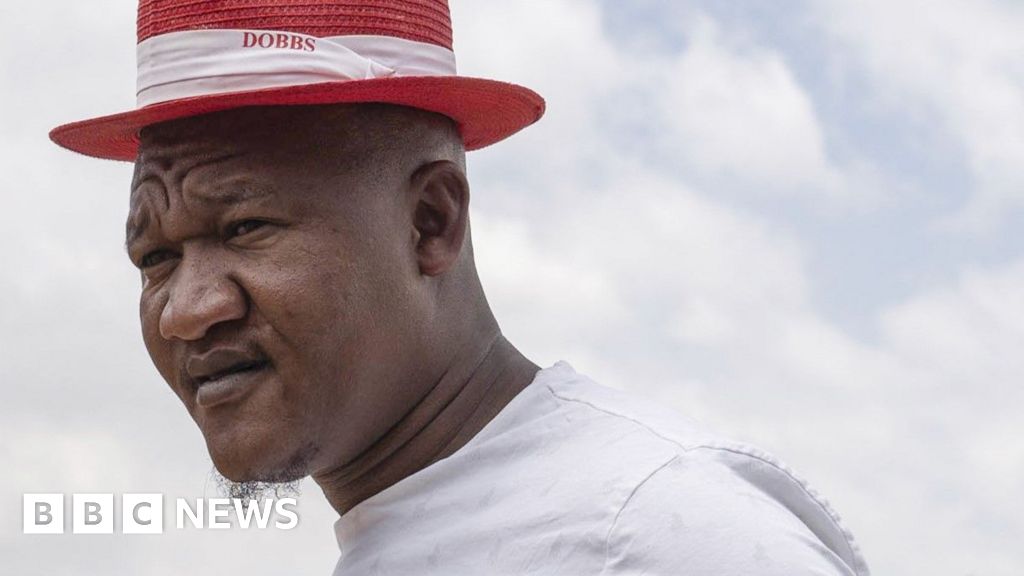
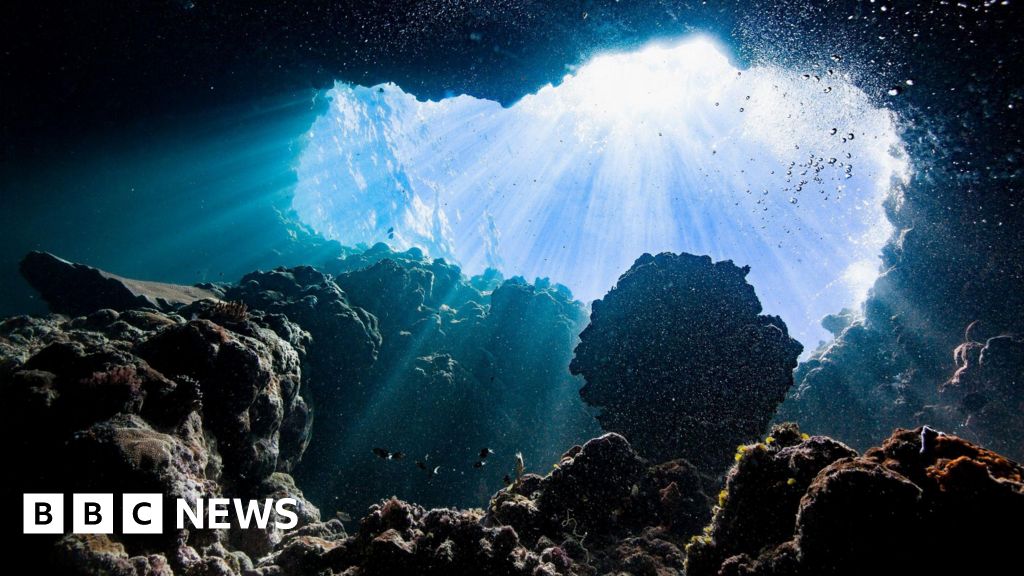
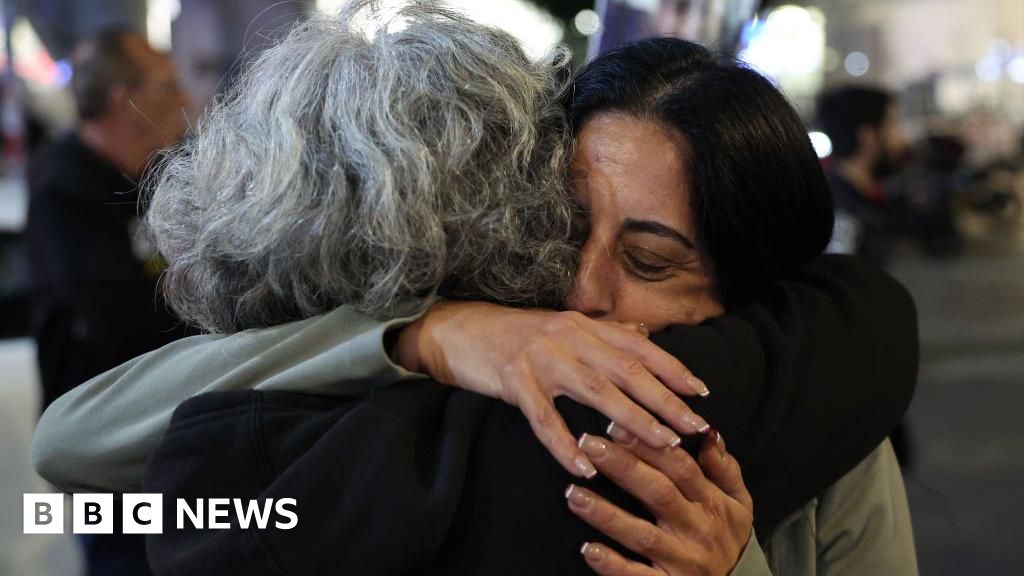





 English (US) ·
English (US) ·